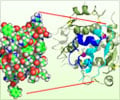
Future Cardiometabolic Implications of Insulin Hypersecretion in Response to Oral Glucose
Go to source) So far it has been believed that the insulin surge, especially after eating carbs, promotes weight gain and contributes to insulin resistance. This occurs when the body's cells don't respond well to insulin, making it harder to control blood sugar levels and increasing the risk of Type 2 diabetes. However, researchers at Sinai Health found on the contrary that it could be an indicator of good health to come. The science is just not conclusive enough to support this notion.
Post-Challenge Insulin and Metabolic Health Insights
Most studies on this topic were either conducted over a short period of time or were based on insulin measurements in isolation that are inadequate and can be misleading, said Dr. Ravi Retnakaran, Clinician-Scientist at the Lunenfeld-Tanenbaum Research Institute, part of Sinai Health."Our findings do not support the carbohydrate-insulin model of obesity," said Dr. Retnakaran. "We observed that a robust post-challenge insulin secretory response -- once adjusted for glucose levels -- is only associated with the beneficial metabolic effects. Not only does a robust post-challenge insulin secretory response not indicate adverse cardiometabolic health, but rather it predicts favorable metabolic function in the years to come."‘Higher corrected insulin response linked to better beta-cell function & lower glucose, irrespective of BMI, waist, lipids, inflammation, or insulin sensitivity. #glucose #BMI #diabetes’
Tweet it Now
The study, published in the journal eClinicalMedicine, followed 306 new mothers because the insulin resistance that occurs during pregnancy makes it possible to determine their future risk of Type 2 diabetes. Further, the team used the corrected insulin response (CIR) that accounts for baseline blood glucose levels. They found a noticeable worsening in waist circumference, HDL (good cholesterol) levels, inflammation, and insulin resistance. However, these seemingly negative trends were accompanied by better beta-cell function. Beta cells produce insulin, and their ability to do so is closely associated with diabetes risk -- the better the beta cell function, the lower the risk. In the long run, higher corrected insulin response levels were linked with better beta-cell function and lower glucose levels, without correlating with BMI, waist size, lipids, inflammation, or insulin sensitivity or resistance.
Dr. Retnakaran hopes their findings will reshape how medical professionals and the public view insulin's role in metabolism and weight management.
Reference:
- Future Cardiometabolic Implications of Insulin Hypersecretion in Response to Oral Glucose - (https://www.thelancet.com/journals/eclinm/article/PIIS2589-5370(23)00540-0/fulltext)















